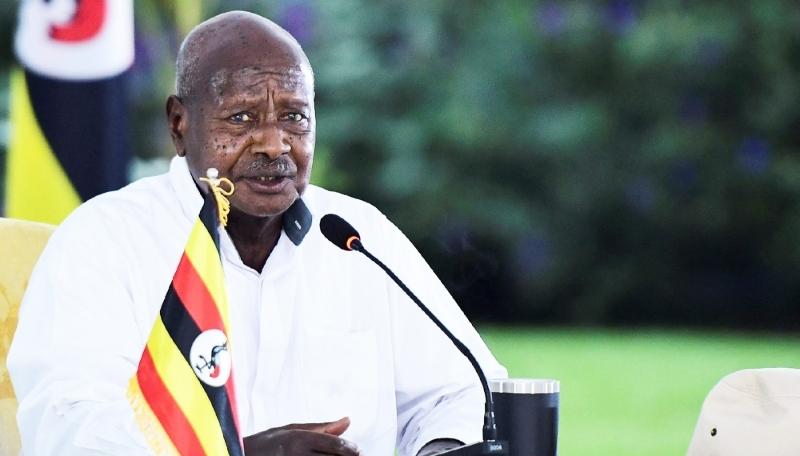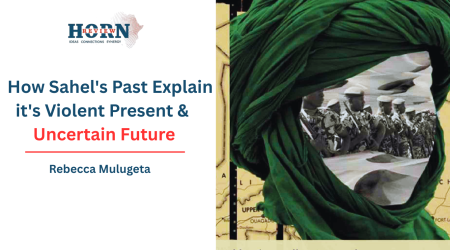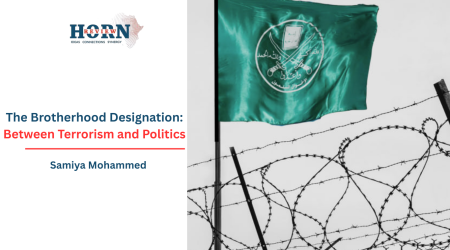
3
Sep
The Uganda Model: How Museveni Turns Refugees Into Geopolitical Currency
Uganda has once again thrust itself into the center of East Africa’s migration politics. Already the continent’s largest refugee host sheltering more than 1.7 million people Kampala has now agreed to accept an unspecified number of deportees from the United States who have been denied asylum.
President Yoweri Museveni, now in his fourth decade in power, is the mastermind of this controversial bargain. While the Foreign Ministry insists only African nationals will be accepted, rumors swirl that others may be off-loaded, fueling speculation about what Kampala gains in return. The crucial lack of transparency around the deal’s scale raises urgent questions about oversight and Uganda’s actual preparedness.
For a leader long seen as a reliable U.S. ally despite authoritarian tendencies, this deal offers short-term relief from international pressure and a new way of monetizing Uganda’s strategic location. For the U.S., it offers a solution to the politically fraught problem of where to send asylum-seekers whose claims have failed, particularly those from unstable homelands. But beneath the applause for Uganda’s “progressive” refugee policy lies a deeper, more dangerous calculus for the Horn of Africa and beyond.
To understand why Uganda would enter such an arrangement, we must first see the man at its center for what he has always been: both arsonist and fireman. Museveni did not rise in a vacuum. His ascent was forged alongside Tutsi refugees from Rwanda and the Congo, who joined his rebel movement, helped overthrow Idi Amin, and eventually supported Paul Kagame’s rise to power in Kigali. Those bonds endure, with Tutsi elites embedded in Uganda’s security apparatus, ensuring Kampala remains a key ally for Rwanda in exploiting eastern Congo’s minerals.
This paradox defines Museveni’s regional role. Uganda has not merely been a passive receiver of displaced peoples; it has often been implicated in generating the very instability that sends refugees across its borders. In Congo, Uganda’s army was found by the International Court of Justice to have plundered resources, a finding that remains relevant today as UN reports detail how military figures profit from smuggling gold and timber. In South Sudan, Ugandan troops propped up Salva Kiir during the civil war, directly shaping the trajectory of mass displacement. The irony is clear: Uganda stokes regional fires, then collects donor credit and legitimacy for hosting the victims.
This history is why the U.S. deal cannot be divorced from Museveni’s ambitions. He has long turned displacement into diplomacy: creating or exacerbating instability, then positioning himself as the indispensable solution. By accepting Washington’s deportees, he leverages Uganda’s “open-door” reputation for renewed favor with the West, after years of strained relations, aid cuts, and exclusion from AGOA trade benefits. It is the latest iteration of a rent-seeking strategy, embedding Uganda in the global system not as an economic powerhouse, but as a resource hunter and humanitarian gatekeeper. Yet even as he dons the fireman’s uniform, he continues fanning flames abroad.
The risks are profound and immediate. Uganda’s refugee settlements from Bidibidi in the north to Nakivale in the west are already overwhelmed. Water, healthcare, and schools are deteriorating under the weight of numbers and donor fatigue; the World Food Programme has repeatedly been forced to cut rations. Adding deportees of uncertain origin, who may share no cultural or linguistic ties with local communities, creates a new layer of alienation and strain.
If these new arrivals cannot or will not remain in Uganda, they may attempt to move elsewhere, carving new irregular migration routes through Kenya, Ethiopia and Tanzania. This risks reshaping regional migration patterns, raising security alarms in neighboring states, and fueling smuggling networks. Dislocated and desperate populations are prime targets for recruitment by extremist groups like Al-Shabaab or myriad militias in eastern DRC a dire concern for the entire region.
Domestically, the deal exposes Museveni’s contradictions. Critics assail its secrecy and lack of parliamentary oversight, warning that he cannot indefinitely present himself as both benevolent humanitarian and unaccountable autocrat. Public frustration over youth unemployment and shrinking civic space could converge into a backlash if hosting is seen as a transactional concession to foreign powers.
The continental stakes are even higher. If Museveni’s model of “deportees-for-concessions” proves successful, it could spread. Rwanda, South Sudan, and other militarized regimes may be tempted to follow, turning asylum into a transactional business auctioned to the highest bidder. This would eviscerate the African Union’s vision of collective responsibility under the Kampala Convention, reducing the continent’s migration framework to a patchwork of opaque bilateral deals.
The AU cannot remain silent. It must demand transparency, enforce regional burden-sharing, and reaffirm that refugee policy must be grounded in humanitarian principle, not elite bargains. Otherwise, Africa risks becoming a warehouse for the world’s displaced, managed by regimes eager for rents but blind to the gathering storm.
Museveni may believe he has bought time and favor. But history shows that bargaining with human lives is a brittle shield. It may deflect criticism briefly, but it leaves Uganda’s citizens, its refugees, and the entire Horn exposed. If unchecked, this gamble could strain the East African Community, spark new migration crises, and worsen the region’s fragile peace. This is not just about Uganda it is about whether Africa will control its migration policy, or whether its leaders will auction it off, piece by piece. The fire Museveni has long played with now threatens to consume the Horn itself.
By Surafel Tesfaye, Researcher, Horn Review
Reference
Bauer, Isabella. “Uganda’s Hidden Role in Congo’s Conflict.” DW, January 4, 2013. https://www.dw.com/en/ugandas-hidden-role-in-congos-conflict/a-16494434.
Migrants & Refugees Section. “Country Profiles: Uganda.” Accessed August 28, 2025. https://migrants-refugees.va/country-profile/uganda/.
“Opposition in Uganda Questions Deal to Receive Deportees from the U.S. like Abrego Garcia.” PBS NewsHour. Accessed August 28, 2025. https://www.pbs.org/newshour/world/opposition-in-uganda-questions-deal-to-receive-deportees-from-the-u-s-like-abrego-garcia.
Usher, Barbara Plett. “Who’s Pulling the Strings in the DR Congo Crisis?” BBC. Accessed August 28, 2025. https://www.bbc.com/news/articles/cp8qp6p39e9o.
“What Will Uganda Gain from Accepting US Deportees?” Al Jazeera. August 23, 2025. https://www.aljazeera.com/economy/2025/8/23/what-will-uganda-gain-from-accepting-us-deportees.










